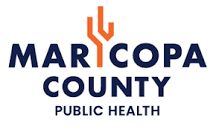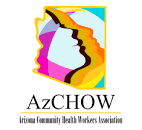This week is shaping up to set a record for the most number of consecutive days with temperatures over 110F. The lower Sonoran desert temps are forecast to be in the 112-117 range each day this week, and the National Weather Service believes there’s a 10% chance we could have multiple days over 120F mid-week.
See the Area Forecast Discussion from the National Weather Service
Environmental heat is by far the deadliest weather phenomena with far more mortality than floods, cold, and lightning combined. It’s not even close. As one of the hottest places on Earth, our Arizona deserts are among the more lethal places weatherwise.
As part of their efforts to mitigate bad outcomes from heat exposure, the Maricopa County Department of Public Health has been conducting public health surveillance to inform policy interventions at the county and city level.
MCDPH published their newest report last month which had some important findings:
View Maricopa County Public Health’s Environmental Heat Mortality Surveillance Report
- 425 heat-associated deaths occurred during 2022 in Maricopa County, a 25% increase from 2021.
- Individuals experiencing homelessness make up the largest proportion of heat-associated deaths in 2022. Among deaths where the living situation is known, people experiencing homelessness are accounting for an increasingly large share of all heat-associated deaths in recent years.
- Maricopa County found 283 deaths involving substance use, representing over 2/3 of all heat-associated deaths recorded in 2022. Note: Methamphetamine was involved in 90% of heat-associated deaths involving drug use. Methamphetamine was a contributing factor or main cause of death in 53% of all heat-associated deaths.
- Fifty-eight percent (58%) of all heat-associated deaths occur in July.
- Males accounted for more than 80% of heat-associated deaths in 2022. Two-thirds (66%) of all heat-associated deaths occurred among individuals aged 50 years or older.
- 60% of heat-associated deaths occurred among non-Hispanic White individuals, however African Americans (7.4%) and American Indians (3.6%) are overrepresented among heat deaths.
- More than 66% of adult decedents did not attend any post-secondary schooling, among all heat-associated deaths with known educational background. Note: Perhaps this is a marker for people with outdoor occupations and those experiencing homelessness.
- The majority of outdoor heat-associated deaths occurred in an Urban Area in 2022. 70% of outdoor heat deaths and over half of all overall heat-associated deaths occurred in an Urban Area within Maricopa County throughout the year.
- All indoor heat-associated deaths in 2022 occurred in uncooled environments. Among indoor deaths where an AC unit was present, the unit was non-functioning in 78% of cases. In 2022, 42% of indoor deaths were among females, despite females making up less than 20% of the overall heat deaths for the year.
View Maricopa County Public Health’s Environmental Heat Mortality Surveillance Report



